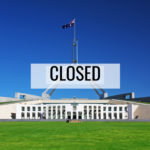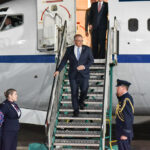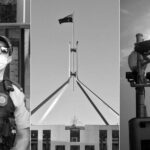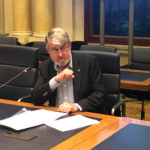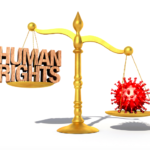Scrutinising Berejiklian’s COVID Response: An Interview With David Shoebridge
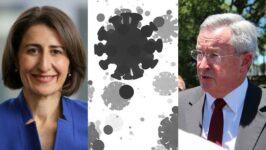
The temperament of this year’s COVID-19 lockdown is completely different to the 2020 episode.
Last year, the entire nation, along with the globe, closed down for an extended period, with financial packages rolled out at the federal level.
This year, it’s a battle fatigued NSW facing a lockdown that started off as a brief stay-at-home jaunt and is now turning into multiple months of confinement. There was no immediate attempt to provide financial assistance from the PM. And people are asking how we got back here.
Indeed, divisions are growing in the community. The 7,000-odd anti-lockdown protesters who marched through Sydney last week are simply the most visible sign of growing dissatisfaction. And those who stayed at home, as ordered, are frustrated that the event could prolong the isolation.
The public is now asking why various Australian governments didn’t do more in the intervening months prior to the second lockdown. And they’re further questioning the Berejiklian government’s current approach, in terms of its urgency, its scope and its disparities.
Looking over their shoulder
The NSW Public Accountability Committee has reconvened its inquiry into the Berejiklian’s government’s handling of the COVID-19 pandemic response. As it did last year, it will provide oversight to the current approach and keep the NSW Coalition accountable.
And it should be noted that this committee has teeth, as it’s the same body that recently blew the lid on multiple pork barrelling scandals involving the NSW Liberal Nationals government.
Committee chair NSW Greens MLC David Shoebridge has outlined the inquiry will be probing into the chauffeur arrangements for international pilots that led to the outbreak, quarantine management, hesitation to lockdown and disparities in approaches between east and west Sydney.
The committee will also be keeping an eye on how the Berejiklian government continues to handle the ongoing outbreak of the Delta strain, which, despite five weeks of stay-at-home orders, continues to climb with another four weeks of lockdown just announced.
A brief history of NSW lockdowns
The current lockdowns are not the first that Sydney – or the nation – has had to endure. As UNSW Professor Jeff Kildea noted last year in the Conversation, the 1919 outbreak of the Spanish Flu saw the NSW government order a mask mandate, while all major public venues were closed down.
The initial February 1919 restrictions were successful with only 15 deaths. However, when the disease resurged in April, parliament was slow to shut down and the death toll rose to 1,395. But a further mid-year resurgence saw no measures taken and 2,400 NSW citizens died in July alone.
By August, the epidemic was declared over. Nationwide, 12,000 Australians died due to the Spanish Flu. And the professor estimates that if such a “burn out” technique was taken today, the death toll would reach tens of thousands.
Sydney Criminal Lawyers spoke to David Shoebridge about the initial stages of the current outbreak, the need for oversight when it comes to the NSW COVID-19 approach, and the rise of far-right conspiracy theories that have made their way over from the US.
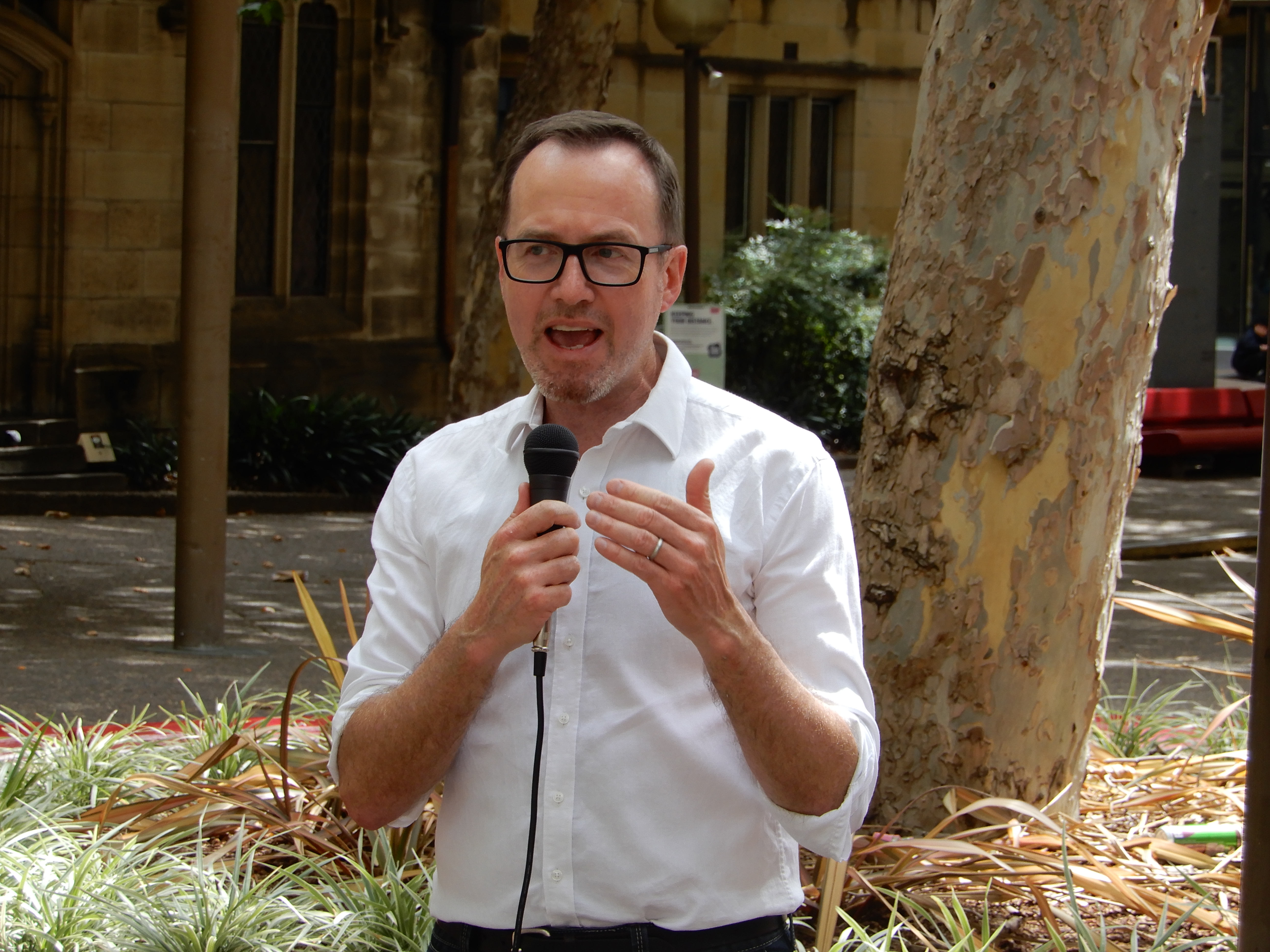
Last Thursday, the Public Accountability Committee announced it will be recommencing its inquiry into the state government’s handling of the COVID-19 pandemic.
David, why is such an inquiry needed?
This inquiry is necessary to have accountability of government during a crisis. We still don’t know the various factors the government took into account, when Greater Sydney moved very slowly into a lockdown in mid-June.
By the time the citywide lockdown was announced, there were already COVID fragments being discovered in some dozen sewage treatment plants right across the Greater Sydney region.
It’s essential that we understand what factors other than public health advice were relied upon to decide when and how hard to go with the lockdown.
In that context, it’s important to remember the state budget was in the middle of that first seven day period.
The committee will be considering the causes of the current outbreak, which, of course, is the second such episode. What aspects in particular need to be scrutinised?
It seems incredible that one of the most critical risks in a pandemic – in this case, the transportation of international flight crew – was handed out to a privatised firm with literally no public health oversight.
We need to understand how that happened and ensure that measures are being put in place so that kind of mistake is not repeated.
When you privatise and contract out critical public health functions in a pandemic, of course, that’s going to invite scrutiny and that’s what we are going to give it.
You’ll also be looking into the way the crisis has been handled up to this point. Will this be concerning the policing or the disparities in approaches? What needs to be addressed?
You can’t look at the public health response without understanding how unevenly and how unfairly pandemic and lockdown measures impact the community.
We have already seen how the same circumstances can cause significantly more disruption in southwest Sydney than they do in more affluent parts of the city, such as the east and the Northern Suburbs.
We all want people to comply with public health orders – to stay home and to stay safe – but, for that to happen, people need to have the economic security and the supports in place for them to safely do that.
At the moment, those arrangements are so patchy that they push against the public health messaging.
You initially convened this parliamentary inquiry last year at the time that NSW parliament was closed down. What did you learn? And how were the findings applied?
What we learnt in that initial phase of hearings was critical to moulding the parliamentary and government response to a number of industries, most particularly, the entertainment and live music industry.
The hearings we had ultimately helped forge the support package for that industry, which up until then had been ignored.
Those hearings also provided a public process where the public health thinking and government decision-making were given far greater scrutiny.
At the moment, the only so-called scrutiny was happening at increasingly chaotic 11 am press conferences. That’s not good enough, especially at a time of genuine crisis.
Over the weekend, around seven thousand Sydneysiders breached the lockdown and marched through the city under the banner of freedom. What are your thoughts on this action?
It’s pretty apparent that far-right organising methods imported from the US have now got a toehold in Australia. This is something the Greens have been pointing to and asking state and federal governments to pay attention to for years.
The fact is that this anti-science, aggressive form of political organising is preying upon some of the most economically and socially vulnerable members of our community, and it requires two responses.
The first is cracking down on far-right conspiracy groups. And the second is providing sufficient economic security and universal payments, so that people cannot be preyed upon because of economic insecurity.
And lastly, David, the inquiry will be delving into how the Berejiklian government is dealing with the rest of the crisis, which only seems set to worsen.
What are the most urgent aspects of what’s unfolding that need addressing?
There are clearly competing lines of thought within the Berejiklian cabinet about how to respond to the lockdown.
There are voices in her team who are calling for the near complete removal of the lockdown and to let the pandemic explode.
There are other influencing voices who are clearly representing specific industries that have traditionally been very powerful, such as the construction sector.
We need to ensure that the decision-making is primarily guided by public health advice and public health measures that keep all of us safe.
We don’t want to just respond to one or two well-funded or well-connected industries or, worse still, to some of the anti-science conspirators who are within the Coalition government ranks.


